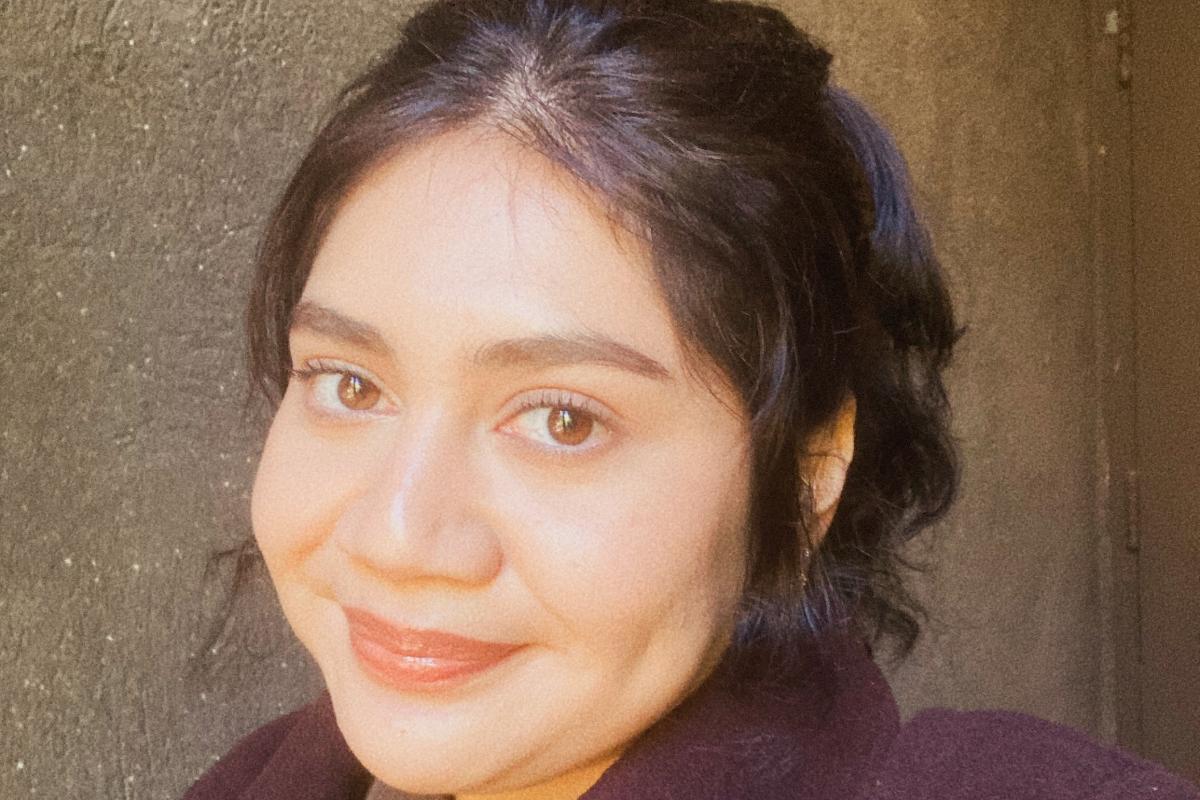“I wish more people studying social work at UChicago knew about human rights internships,” says Tanya Estrada Gomez. “In my experience, they go together really well.”
Estrada Gomez, currently enrolled in a dual-degree graduate program between the Crown Family School of Social Work and the Harris School of Public Policy, spent the summer as a programming intern at the Midwest regional office of the Hispanic Federation, supported by a $5,000 flexible Pozen Center grant. While most human rights internship grantees are College undergrads, the program is also open to Crown students.
Who gets to be a citizen? Who decides? Who ‘deserves’ citizenship? Who deserves different benefits? How do ideologies like white supremacy shape the way we think about these questions? What can we do about it?
At the Hispanic Federation, Estrada Gomez’s primary project was to survey Chicago area nonprofits that work with Hispanic communities, analyzing how the Hispanic Federation could best support their efforts. Many of these organizations directly address human rights issues like health, housing, and migration.
“I’m pursuing social work because I want to help Latinx communities thrive,” says Estrada Gomez. “The internship was great preparation for that. I was out in the field, listening to communities talk about their needs, thinking about what it takes to really meet those needs. And coming in with a human rights framework really helped me think about a broader context.”
Intellectual Context for Work in the Field
Last year, Estrada Gomez got her first deep introduction to the world of human rights scholarship from the “Human Rights: Migrant, Refugee, Citizen” course.
In addition to giving Estrada Gomez a new perspective on her family’s own migration stories, the course also immersed her in questions she can carry over into social work. “Who gets to be a citizen? Who decides? Who ‘deserves’ citizenship? Who deserves different benefits? How do ideologies like white supremacy shape the way we think about these questions? What can we do about it?”
Interviewing organizations and individuals across Chicago’s Hispanic communities, Estrada Gomez got new, on-the-ground perspectives on these questions. When the state of Illinois paused funding for undocumented migrants, she attended a protest in downtown Chicago, where she listened to people sharing stories of how they would be affected. “These are life or death issues,” she says. “To make a difference you need to understand them from as many angles as possible. I know I’ll be benefiting from my internship for a long time.”
- Learn more about Pozen Center internships, which provide $5,000 grants for human rights work in the field.
- Read about becoming a human rights major or minor.

